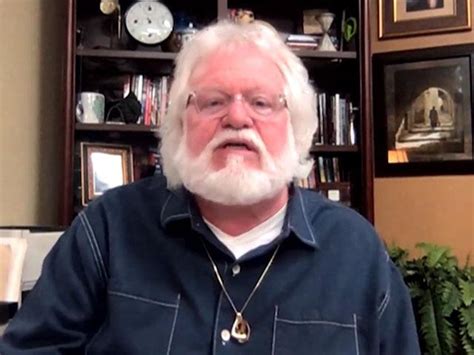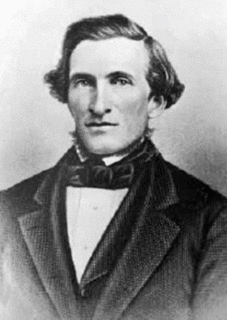A Quote by Oliver Cowdery
I will not be influenced, governed, or controlled, in my temporal interests by any ecclesiastical authority or pretended revelation whatever, contrary to my own judgment.
Quote Topics
Related Quotes
...[sacred] doctrine is especially based upon arguments from authority, inasmuch as its principles are obtained by revelation: thus we ought to believe on the authority of those to whom the revelation has been made. Nor does this take away from the dignity of this doctrine, for although the argument from authority based on human reason is the weakest, yet the argument from authority based on divine revelation is the strongest.
The gifts that Yeshua left in the earth realm to enforce His authority were apostles, prophets, pastors, teachers, and evangelists. The gift that gets controlled or stopped, which hinders the others from coming into fullness, is the prophet's gift and authority. Apostles will attempt to build a pattern without present revelation, and end up building man's model.
Temporal punishments are suffered by some in this life only, by some after death, by some both here and hereafter, but all of them before that last and strictest judgment. But not all who suffer temporal punishments after death will come to eternal punishments, which are to follow after that judgment.
In a discussion of this kind our interest should be centered not on the weight of the authority but on the weight of the argument. Indeed the authority of those who set out to teach is often an impediment to those who wish to learn. They cease to use their own judgment and regard as gospel whatever is put forward by their chosen teacher.
A man that advances in spiritual and in temporal matters at the same time, minding to keep the spiritual first, will not let the temporal lead him; he will not place his heart upon his farm, his horses, or any possession that he has. He will place his desires in heaven, and will anchor his hope in that eternal soil; and his temporal affairs will come up as he advances in the knowledge of God.
Certainly we do not believe in the present ecclesiastical arrangement called Christmas: first, because we do not believe in the mass at all, but abhor it, whether it be said or sung in Latin or in English; and, secondly, because we find no Scriptural warrant whatever for observing any day as the birthday of the Savior; and, consequently, its observance is a superstition, because not of divine authority.
The 'nations,' as they are called, with whom our pretended ambassadors, secretaries, presidents, and senators profess to make treaties, are as much myths as our own. On general principles of law and reason, there are no such 'nations.' ... Our pretended treaties, then, being made with no legitimate or bona fide nations, or representatives of nations, and being made, on our part, by persons who have no legitimate authority to act for us, have intrinsically no more validity than a pretended treaty made by the Man in the Moon with the king of the Pleiades.
[I]t is contrary to the economy of God for any member of the Church, or any one, to receive instruction for those in authority, higher than themselves . . . if any person have a vision or a visitation from a heavenly messenger, it must be for his own benefit and instruction; for the fundamental principles, government, and doctrine of the Church are vested in the keys of the kingdom.
Even as he would be guilty of falsehood who would, in the name of another person, proffer things that are not committed to him, so too does a man incur the guilt of falsehood who, on the part of the Church, gives worship to God contrary to the manner established by the Church or divine authority, and according to ecclesiastical custom.































